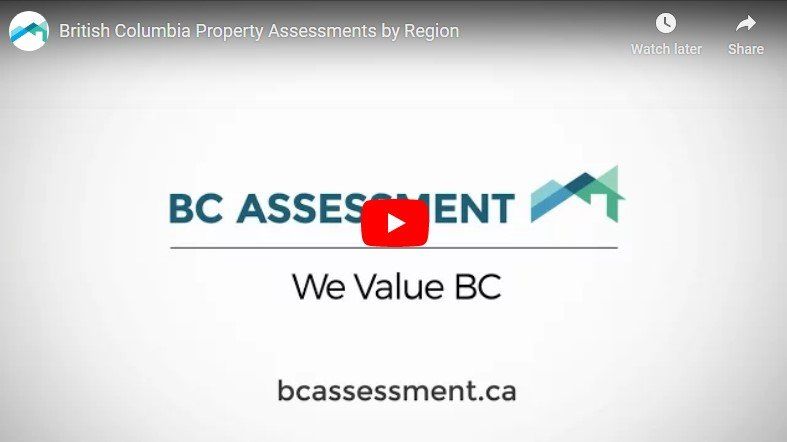BC Property Assessment by Region [Video]
This is the 2016 British Columbia property assessment overview. Prepared for you by us, BC Assessment, your trusted go-to source for property information.
2016 property assessments are based on property values as of July 1st, 2015. So if you own property in BC, your property assessment will be mailed to you in January, so look for your assessment in the mail. There are some interesting facts to consider for 2016, for example, the total number of properties within BC has increased to about 2 million or 1.06% increase from 2015. The total value of all real estate has increased over 1.3 trillion dollars. That’s an 11.1% increase from 2015, and the value-added from new construction, subdivisions and rezoning alone is equal to 20.3 six billion dollars, an 8.9% increase from 2015.
Let’s take a look at some highlights in BC’s regions, starting in Greater Vancouver where 2016 increases are quite dramatic.
- A typical urban residential single detached home is up 15-30 % and climbing compared to last year.
- Urban residential strata units, are generally up a relatively modest 10%, and greater Vancouver’s highest assessed home, is nearly sixty four million dollars for 2016.
- Greater Vancouver’s urban commercial properties are also up significantly, with typical increases in the 10-25% range for 2016.
Next stop, let’s head further south, here we have included southern parts of Metro Vancouver, such as Richmond and Surrey, along with the usual Fraser Valley Community.
- Typical residential single detached homes have increased by 5-25% in urban areas, with changes of minus 5 plus 5% in rural areas.
- Residential strata units have generally experienced an increase of 0-10% compared to last year and commercial property increases, are in the 5-15% range.
Now let’s head further east to the Thompson Okanagan region.
- Typical residential homes increased anywhere from 0-10% in urban areas, and 0-5% in rural areas.
- Changes to commercial property assessments are generally in the minus 5 to plus 10% range.
Next off, let’s head over to the Kootenay Columbia region.
- Typical residential homes are experiencing changes of 0-10%, in both rural and urban areas.
- Commercial properties are generally changing by minus 5 to plus 5%.
Now let’s head north to the vast northern BC region.
- Both residential homes, as well as commercial properties have experienced changes in the range of 0-10%, in both rural and urban areas.
Finally, let’s head back south, down the coast, to the Vancouver Island region.
- Across the island typical residential homes have changed in the minus 5 to plus 10% range compared to last year
- Commercial properties are generally changing minus 5 to plus 5%
Here’s how each region’s single highest assessed home stacks up for 2016. The Greater Vancouver region, Vancouver Island region, the Fraser Valley region, the Thompson Okanagan region, the Kootenay Columbia region, and the northern BC region. To find out more on the top value of residential properties in your region, visit the top 100 lists for each region and the expanded top 500 list for the entire province at bcassessment.ca.
With our comprehensive approach and innovative technologies, such as street front imagery and 3D modeling, and by using a number of information sources; like building permits, land titles office, real estate transactions, on-site inspection, aerial and street front imagery, and owner reporting through online questionnaires and forms. We prepare fair, uniform, and equitable assessments. We want to make sure we give you the best customer service and most accurate information possible. So, look for your assessment in the mail arriving in January. We encourage you to compare it online to other property values in your area, using our evalue BC service at bcassessment.ca.
If you haven’t received your assessment, or if you have more questions about your assessment after using our services, call us at 1 866 value BC. If you want to file an appeal, you need to file by the February 1st, 2016 deadline. We value conversation, so start the conversation, by following us on Twitter, Facebook, LinkedIn, and YouTube. We are BC Assessment your trusted go-to source for property information, and we value BC.
Share
RECENT POSTS





